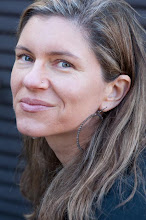
My family and I are spending "Ski Week" in Point Reyes, a vast coastal area of tremendous natural beauty, and for my husband and me, reconnection to what heals us.
But what is healing? I first thought about healing when I was a medical student and read Health and Healing by Andy Weil, MD, published in 1983. His sage observations include the idea that healing is an inside job - it's the body's attempt to restore equilibrium when equilibrium is lost. It doesn't come from external sources and cannot be prevented, although we all create obstructions to our expression of healing. He describes how we all have an innate capacity and birthright to heal, and while medicine and healers can either speed healing or remove obstructions to healing, they do not give you what you do not already have.
Andy also refers to a brilliant quote from a social club called the Aesculapian Club at Harvard Medical School: "We dress the wound, God heals it." That is, in medicine, even integrative medicine, we can facilitate healing -- remove obstacles, motivate the sick to get well, and perhaps pump up vitality in those disconnected to theirs. That is all we can expect to do.
My husband and I know healing when we see it: inspiring natural landscape, deep breaths of fresh air, dense quiet, long and deep conversation, tuning into each other and relationship, friendship, restorative sleep, quiet time, meditation, play, reading without goal, organic food, gratitude, Toby's Feed Barn; in short, simplifying our lives. We also know what does not heal us: endless email, and included with that - immediate access in all fronts (computer, text, cell phones, home phones, work phones), running our businesses and being overly driven by it, being too busy, driving everywhere, rushing, stress, anger, resentment, material consumption, acquisition, retirement planning. It makes us sick. It poisons us. It blocks our connection to True Self, or Higher Power, or Source Energy, or whatever you wish to call the power outside of yourself.
Seems worthwhile to insert here one more bit of wisdom from Dr. Andy -- his 10 principles of health and illness.
1. Perfect health is not attainable
2. It is all right to be sick
3. The body has innate healing abilities
4. Agents of disease are not causes of disease
5. All illness is psychosomatic
6. Subtle manifestations of illness precede gross ones
7. Every body is different
8. Every body has a weak point
9. Blood is a principle carrier of healing energy
10. Proper breathing is a key to good health
My husband and I were talking about healing the earth and the green movement. He listed the three strategies/behaviors for healing the earth:
1. Less bad behavior (e.g., use less water, use compact fluorescent light bulbs, recycle)
2. Net zero behavior (only use as much energy as you generate, use as much water as you captures from the rain or recycle gray water).
3. Restorative behavior
4. Regenerative behavior
I thought of how we can apply these strategies to health and healing, i.e., you can choose if you want to eat less bad food or have a less bad lifestyle, or you can go for optimal health by regenerating your gut with what you eat, regenerating your brain with your supplements, and regenerating energy so that you feel you have more than enough when you get up in the morning. What does a regenerative life look like in your context?



